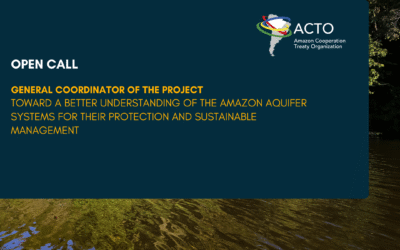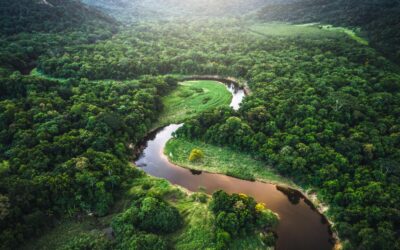In a major collaboration supported by the World Bank and attended by more than 150 participants, the Amazon Cooperation Treaty Organization (ACTO) unveiled the results of a two-year effort on Tuesday 14. This initiative involved more than 100 experts in analyzing the status and trajectories of biodiversity and ecosystem services in the Amazon Region. Delving into multifaceted dimensions that include biological, social, cultural, economic and political aspects, the assessment used the methodology and conceptual framework of the Intergovernmental Science-Policy Platform on Biodiversity and Ecosystem Services (IPBES). In particular, this effort marks a world-first subregional assessment prepared under these guidelines.
“By generating technical-scientific synthesis reports to strengthen the interface between science, policy and society and to be an input for informed decision making in the Amazon, this Rapid Assessment is an important tool to strengthen and substantiate the growing importance of the region in the world”. This was summarized by ACTO Executive Director, Vanessa Grazziotin, at the opening of the event.
Ana Maria Gonzalez, Coordinator of the World Bank’s Amazon Sustainable Landscapes Program, praised the assessment as a crucial contribution to this year’s United Nations Convention on Biological Diversity Conference (COP 16 CBD) in Colombia adding “this is another example of ACTO’s ability to promote cooperation between countries and institutions”.
The Rapid Assessment, which consists of a technical document comprising six chapters and a summary for decision-makers, reflects a transparent process marked by continuous revisions and input from experts from around the world. It offers a comprehensive perspective that encompasses biophysical, economic, social and cultural dimensions, contextualized within the legal frameworks of ACTO countries on biodiversity and ecosystem services. Coordination with academic and business sectors and representatives of indigenous peoples and local Amazonian communities was an integral part of the process.
Carlos Salinas, ACTO Environment Coordinator, highlighted the importance of safeguarding traditional knowledge along with scientific research and innovation for effective decision making and policy formulation.
The presentation of the study results by Sandra Acebey, co-chair of the Rapid Biodiversity Assessment, underlined the vital role of the Amazon in the provision of ecosystem services at global, regional and local levels. She highlighted the importance of indigenous peoples in biodiversity management and warned against extractivist economic models as the main drivers of deforestation. He also stressed that considering the adverse negative effects of climate change and the different anthropogenic drivers on biodiversity and ecosystem services in the Amazon, it is necessary to move away from trajectories centered or focused solely or primarily on economic benefits in accordance with the visions and values of today’s world, requiring substantive and immediate actions to move towards “Great Transitions” and change the paradigm of sustainable development.
Rita de Cássia Mesquita, National Secretary for Biodiversity, Forests and Animal Rights of Brazil’s Ministry of Environment and Climate Change, urged a reevaluation of development models. “More important than reevaluating the public policy instruments we have at our disposal, it is urgent to reevaluate our development models and give the true value to our environmental assets, with proper care for forests to remain standing and stop underestimating the role of women and youth, to build a new vision of values that are fundamental to a new model of sustainable development.”
Benoit Bosquet, Regional Director of Sustainable Development for Latin America and the Caribbean at the World Bank, praised the rigor of the Rapid Assessment and reflected on the challenge of incorporating its recommendations into public and private policies, highlighting the proactive involvement of indigenous peoples and local communities through their life plans. The World Bank is adopting and developing a new vision called the Living Amazon, composed of three pillars, the Green Amazon, the Prosperous Amazon and the Livable Amazon, and where there is a constant respect for nature.
Pietro Graziani, Technical Coordinator of the Italian Agency for Development Cooperation (AICS) of the European Union’s Amazonia+ Program, praised the Rapid Assessment and highlighted the commitment and support of the Program, including the signing of a Letter of Intent between Amazonia+ and ACTO. He affirmed the agreement to support new initiatives, such as the creation of the Amazon Intergovernmental Technical-Scientific Panel within ACTO.
This collaborative effort underscores a collective commitment to preserve the rich biodiversity of the Amazon and promote an urgent change in the current sustainable development paradigm.











